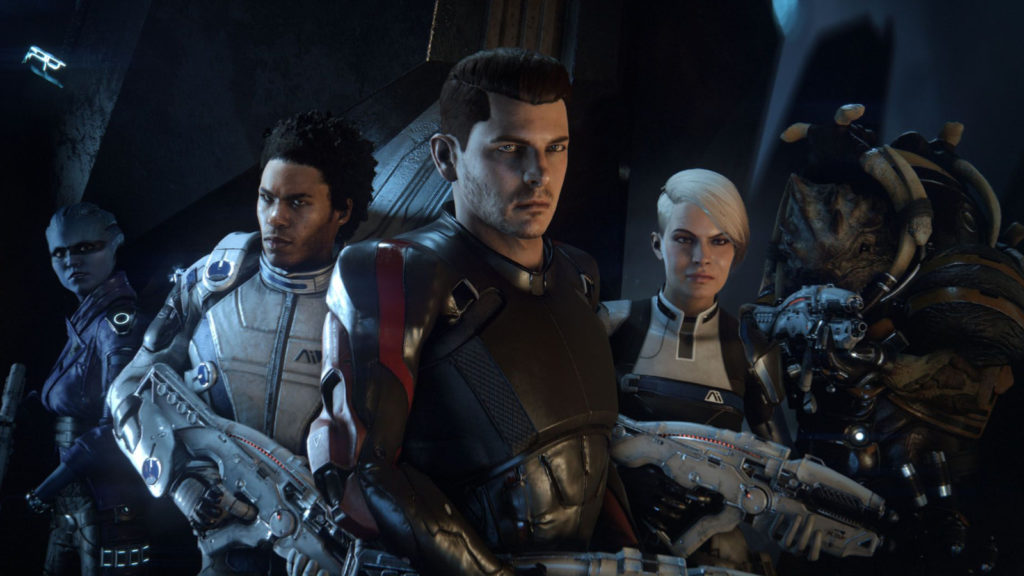South Africa’s new school year has begun with renewed attention on digital inclusion. MTN South Africa, through the MTN SA Foundation, has provided digital…
Over-ambition lead to Mass Effect: Andromeda’s greatest flaws

The irony isn’t lost on us. With Mass Effect: Andromeda, Bioware aimed for the stars but sadly only ended up digging itself a hole. But to truly understand the shortcomings of Andromeda, we need to go back to the beginning.
According to a detailed report by Kotaku reporter Jason Schreier, after the release of Mass Effect 3 in 2012 and the conclusion of Commander Shepard’s battle against the Reaper threat, Bioware decided to wipe the slate clean and start afresh. So fresh, in fact, that they decided to hand the reins over to their Montreal-based studio, instead of the main Edmonton studio that developed the original trilogy.
After some brainstorming and spitballing by a small group of top Bioware employees, the team concluded that they wanted to return to the roots of the franchise.
“The goal was to go back to what Mass Effect 1 promised but failed to deliver, which was a game about exploration,” said a source who worked on Andromeda.
At first, there was some speculation on doing a prequel that would explore the “First Contact Wars”, the time when the human race first encountered alien species in the Mass Effect world. But after Casey Hudson, executive producer of the original trilogy, asked fans if they were interested in a prequel or sequel, it was undeniably clear that the latter was the most popular option.
Eventually, the idea of Andromeda was born, originally codenamed “Dylan”, as in “Bob Dylan”, (according to Bioware employee) because the Hudson team wanted to make a game that will still be talked about years from now.
The team started exploring a myriad ambitious ideas but put most of their focus and time in developing a title that boasted procedurally generated planets, allowing them to drastically expand the scope of the game.
After a series of technical issues and limitations, this idea never came to fruition though and in the end was completely dropped from the game. With one of their greatest alluring elements now gone and an ever-looming deadline on the horizon, the team scrambled to find their next hook.
Another massive hurdle was EA’s Frostbite engine, a renowned tool in the game developing world but one that wasn’t necessarily suited to Andromeda’s vision. For the most part, Frostbite handled established mechanics really well but when trying to implement new and original features, such as vast maps and role-playing mechanics, the team started running into a plethora of problems.
“Whenever you’re trying to do something that fits the engine — vehicles, for example — Frostbite handles that extremely well,” one designer told Kotaku. “But when you’re building something that the engine is not made for, this is where it becomes difficult.”
The trouble didn’t end there, of course. In 2014, many key members of the original franchise (including Hudson), left Bioware and it was up to the newcomers to take the lead. This lead to countless narrative revisions and scope changes, and it wasn’t until the end of 2015 that Andromeda actually made it out of pre-production.
“We started to realise by summer 2015 that we had great technological prototypes, but we had doubts they would make it into the game,” said another person who worked on the game.
Taking that into account, the actual of production and development of Andromeda took place in a mere eighteen months, an incredibly short time for a game of this magnitude.
In the end, it was a string of problems that lead to Mass Effect: Andromeda’s underwhelming result. It certainly wasn’t due to a lack of trying, but over-ambition eventually became the greatest obstacle of the game’s realisation.
At present, Bioware or EA has not yet commented on these developments. For a more in-depth look at this story, check out Schreier fascinating yet sad piece on the topic.


